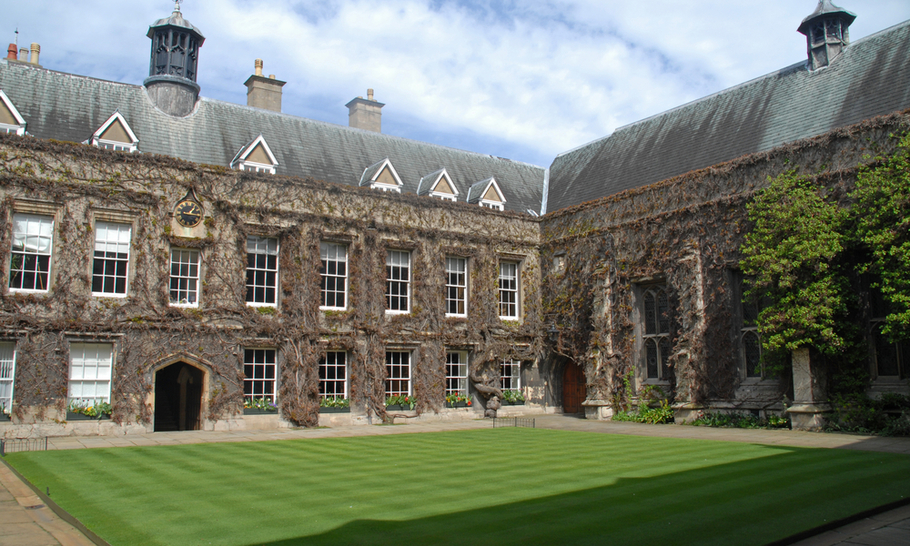Unconditional pride — and academia’s fall

Lincoln College, Oxford (Shutterstock)
It was the proudest day of my young life, when Lincoln College, Oxford, offered me a rather rare, and much coveted, unconditional place some 65 years ago. I phoned my parents. Dad, hungry for learning, had instead left an East End board school at 13, to be apprenticed to an uncle, a master sign-writer. Mum had, by some miracle, been offered a place at Cambridge as a schoolgirl during World War One, but could not afford to take it up. She came from a seriously poor family. “I’m in…and it’s unconditional!” I yelled. I remember father saying, after I had explained what, in context, unconditional meant: “Unconditional, eh. So that means they must really want you then. That’s great. Congratulations.”
Well, Dad would not be congratulating me today. My badge of pride has become a badge of shame. Wonder of wonders, the Department of Education, UCAS, the Office for Students and the University and College (teachers’) Union have all agreed that some universities are throwing unconditional offers around like confetti and are determined to put a stop to the astonishingly fast growing and damaging habit. The language all these heavyweight bodies have been using is robust. The UCU condemned the practise as “making a mockery of [school] examinations” because they are specifically designed to ignore A-level results. Conservative Education Ministers have called the practise “irresponsible”. Universities have been warned that those which do not get a grip could be fined or, in the last resort, have their accreditation as universities withdrawn. In reply, some shameless universities are claiming that the threatened government pressure is unlawful and are warning of legal action if they are penalised.
The figures are amazing. In the five years ending 2018, the number of unconditional offers jumped from around 29,000 to around 67,915 and are still rising. Accurate figures are notoriously difficult to come by, but it seems that between a quarter and a third of applicants are now made such offers. Some carry a caveat. They are called, in the trade, “conditional unconditionals” and are particularly toxic. For if you accept one of those, you must promise not to apply to any other (often better regarded) universities if your A-level results turn out to be better than predicted.
So what has gone wrong? Well, if some second or third rate universities are attempting to use endless unconditionals or conditional unconditionals to capture relatively high grade students who might otherwise have jumped ship for a better berth, at the last minute, then they have made a botch of it.
Research shows that students who enter university on unconditional offers are more likely than other students to drop out. To be blunt, they tend to be the weakest candidates. Not the strongest. Maybe they are just not bright enough to stand the pace of university life. Maybe they are from poor and vulnerable backgrounds and need more support. Certainly they are not to blame for their “failure”. Those who egged them on most certainly are. And that includes not merely those handling entrance applications, but also the politicians who, as a political gimmick, decided a couple of decades ago that one in two school leavers should go to university. They turned perfectly adequate colleges and polytechnics into often questionable universities, as if by magic, to enable the result they sought.
The end result is that we now have some 140 universities, some struggling to make the grade, and competing for students, many of whom would have been far better off in the past applying to technical colleges or polytechnics to become skilled and much-needed engineers, technologists, IT experts and the like. Quite simply, we have too many unhappy students taking substandard media studies, journalism or other Mickey Mouse degrees, which often seem to be little more than training grounds for disgruntled professional protesters. Of course, there are outstanding journalism courses: City University and Cardiff are obvious examples. But many are not. Marginal students waste their time and end up heavily in debt.
The problem is that, in this brave new world of free market academia, many universities have become hustlers for business. They can, and occasionally do, go broke or merge with others. They pay their vice-chancellors ludicrous sums to boost student numbers and hence tuition fees. Bums on seats in lecture theatres mean much-needed money in the bank. To oversimplify, universities are paid by the number of students they recruit. Not by the quality of those students. Or their academic fate. No wonder the number of unconditional offers is still rising. Just as the quality of degrees – in particular, First Class degrees – is falling.




